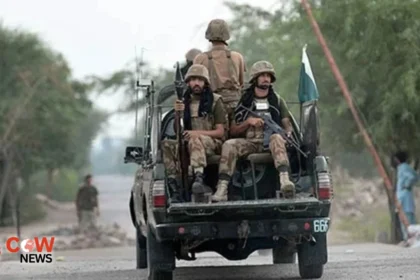Introduction
The Lahore High Court (LHC) has taken a significant step by summoning the Inspector General of Punjab and other relevant authorities in response to alarming incidents in educational institutions across the province. This decision comes in the wake of rising concerns regarding safety, security, and the overall environment in schools and colleges. The court’s action reflects a growing recognition of the need for accountability in ensuring the safety of students and educators alike.
- Introduction
- Background of the Issue
- The Court’s Directive
- Previous Incidents Highlighting the Need for Action
- The Role of Law Enforcement in Ensuring Safety
- Developing Comprehensive Safety Protocols
- The Importance of Parental Involvement
- Establishing Parent-Teacher Associations
- Advocating for Policy Changes
- The Role of Educational Leadership
- Building a Positive School Climate
Background of the Issue
Recent incidents in educational institutions have raised serious questions about the safety and well-being of students. Reports of violence, harassment, and other forms of misconduct have led to widespread public outcry. These events have not only disrupted the academic environment but have also instilled fear among students and parents. The Lahore High Court’s decision to summon the IG Punjab indicates a judicial acknowledgment of these pressing issues.
The education sector has long been a focal point for discussions on safety and security in Pakistan. With increasing enrollment rates and a growing population, educational institutions are facing new challenges in maintaining a safe learning environment. The recent incidents have highlighted the urgent need for effective measures to protect students and uphold their rights within educational settings.
The Court’s Directive
The Lahore High Court’s summons to the IG Punjab and other officials aims to address the concerns surrounding the recent incidents in educational institutions. The court has demanded a comprehensive report detailing the steps taken by law enforcement agencies to ensure the safety of students. This includes an assessment of existing security measures, protocols for handling incidents of violence or misconduct, and plans for improving safety in schools and colleges.
The court’s intervention is crucial in holding authorities accountable for their responsibilities in safeguarding educational institutions. By demanding transparency and action, the LHC is sending a clear message that the safety of students must be a top priority for the government and law enforcement agencies.
Previous Incidents Highlighting the Need for Action
Several incidents leading up to the LHC’s summons have drawn public attention and raised alarms about the safety of students in educational settings. Reports of bullying, sexual harassment, and violence within schools have surfaced, prompting calls for action from parents, educators, and advocacy groups.
For instance, incidents involving physical altercations between students, inappropriate behavior by staff members, and even instances of harassment from outside the school environment have made headlines. These events have not only caused physical harm but have also taken a toll on the mental health and emotional well-being of students. The public response has been one of outrage and concern, emphasizing the urgent need for systemic change.
The Role of Law Enforcement in Ensuring Safety
The role of law enforcement in maintaining safety in educational institutions cannot be overstated. Police presence, effective communication channels between schools and law enforcement, and proactive measures to address potential threats are vital components of a comprehensive safety strategy.
The Lahore High Court’s summons highlights the necessity for law enforcement agencies to be actively engaged in ensuring the safety of students. This includes regular patrols around educational institutions, collaboration with school administrations to develop safety protocols, and timely responses to reported incidents.
Furthermore, community policing initiatives can play a pivotal role in building trust between law enforcement and educational institutions. By fostering relationships with students and educators, police can better understand the unique challenges faced by schools and work collaboratively to address them.
Developing Comprehensive Safety Protocols
In light of recent incidents, educational institutions must develop comprehensive safety protocols to protect students and staff. This includes implementing measures such as:
- Emergency Response Plans: Schools should have well-defined emergency response plans that outline procedures for various scenarios, including natural disasters, violence, and medical emergencies.
- Training and Awareness Programs: Educators and staff should receive training on recognizing and addressing potential threats, as well as handling incidents of bullying or harassment effectively.
- Enhanced Security Measures: Schools should invest in security infrastructure, including surveillance cameras, access control systems, and increased personnel presence during school hours.
- Mental Health Support: Providing access to mental health resources for students is essential in addressing the emotional impact of incidents and fostering a supportive environment.
The Importance of Parental Involvement
Parents play a critical role in ensuring the safety of their children within educational institutions. By being actively involved in their children’s education and communicating with school staff, parents can contribute to a safer learning environment.
Parental engagement can take various forms, including participation in school meetings, volunteering for events, and advocating for necessary changes within the school system. Furthermore, parents should maintain open lines of communication with their children, encouraging them to speak up about any concerns or incidents they may encounter at school.
Establishing Parent-Teacher Associations
Establishing strong parent-teacher associations (PTAs) can be instrumental in enhancing communication and collaboration between parents and educators. PTAs provide a platform for discussing safety concerns, sharing ideas for improvement, and collectively advocating for policies that prioritize student safety.
These associations can also facilitate workshops and seminars focused on safety awareness, helping parents and students understand how to navigate potential challenges in educational settings. By fostering a sense of community and shared responsibility, PTAs can contribute to a more secure environment for students.
Advocating for Policy Changes
The recent incidents in educational institutions highlight the need for policy changes at the governmental level. Policymakers must prioritize the development and implementation of comprehensive strategies aimed at ensuring the safety and well-being of students.
This includes:
- Increased Funding for School Safety Initiatives: Allocating resources for safety measures, training programs, and mental health services is essential for creating a secure educational environment.
- Legislation Addressing Bullying and Harassment: Enacting laws that specifically address bullying and harassment in schools can provide a framework for accountability and intervention.
- Regular Assessments of School Safety: Implementing regular assessments of school safety protocols can help identify areas for improvement and ensure that institutions are equipped to handle potential threats.
The Role of Educational Leadership
Educational leaders, including principals and administrators, have a pivotal role in creating a safe and supportive environment for students. They must prioritize safety as a core value within their institutions and actively promote a culture of respect and accountability.
Building a Positive School Climate
Creating a positive school climate is essential for preventing incidents of violence and misconduct. Educational leaders should foster an inclusive environment where students feel valued, respected, and safe. This can be achieved through:
- Promoting Positive Relationships: Encouraging positive relationships among students, staff, and parents can contribute to a supportive school community.
- Implementing Anti-Bullying Programs: Schools should establish and promote anti-bullying programs that educate students about the importance of empathy, respect, and conflict resolution.
- Encouraging Open Communication: Creating avenues for students to express their concerns and report incidents without fear of retaliation is crucial for fostering trust and accountability.
The Lahore High Court’s summons of the IG Punjab and other relevant authorities marks a critical step toward addressing the pressing issues surrounding safety in educational institutions. As the court seeks accountability and transparency, it emphasizes the collective responsibility of law enforcement, educational leaders, parents, and policymakers in ensuring the safety and well-being of students.
The recent incidents serve as a stark reminder of the urgent need for comprehensive measures to protect students in schools and colleges. By prioritizing safety, fostering open communication, and advocating for policy changes, society can work towards creating an educational environment where students can thrive without fear.
#LHC #Punjab #EducationSafety #StudentWellbeing #SchoolSecurity #EducationalInstitutions #ParentalInvolvement #PolicyChange #SafeSchools







